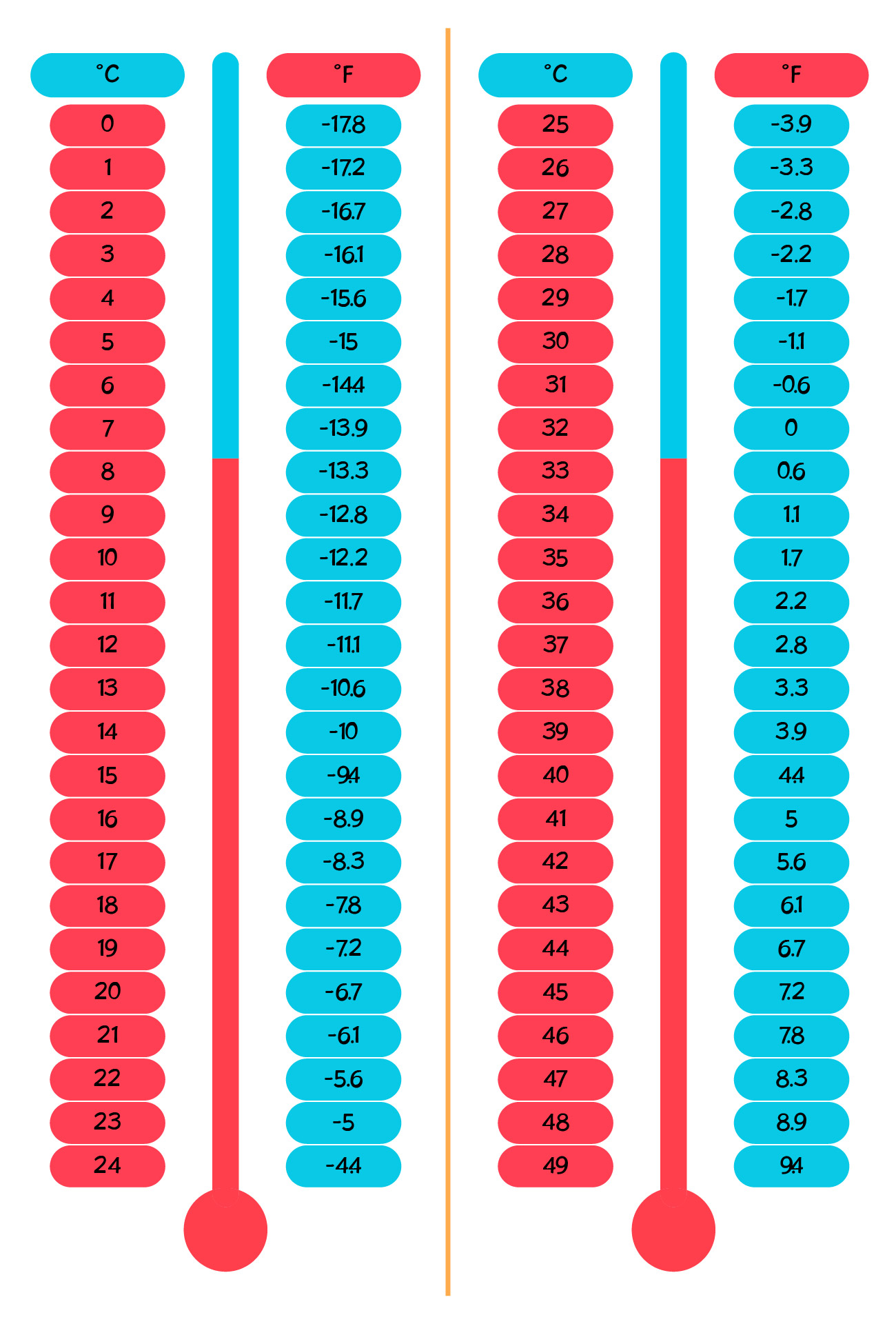Understanding how to convert temperatures is essential in our daily lives, especially when traveling or communicating with people from different regions. Knowing how to convert 30 degrees Celsius to Fahrenheit can be particularly useful for those living in countries that use the Celsius scale. This detailed guide will explore the conversion process, provide useful tips, and delve into the significance of temperature measurement in various contexts.
In this article, we will break down the conversion formula, compare Celsius and Fahrenheit scales, and offer practical examples. Whether you're a student, a traveler, or simply curious about temperature conversions, this article will equip you with the knowledge you need.
Let’s dive into the fascinating world of temperature measurement and discover how to accurately convert 30 degrees Celsius to Fahrenheit!
Table of Contents
- Understanding the Conversion Formula
- Celsius vs. Fahrenheit: Key Differences
- Practical Examples of Temperature Conversion
- The Importance of Temperature Measurement
- Scientific Applications of Temperature Conversion
- Everyday Use of Temperature Conversion
- Common Misconceptions about Temperature Scales
- Conclusion and Call to Action
Understanding the Conversion Formula
To convert Celsius to Fahrenheit, you can use the following formula:
F = (C × 9/5) + 32
In this formula:
- F represents the temperature in Fahrenheit.
- C represents the temperature in Celsius.
Now, let’s apply this formula to convert 30 degrees Celsius to Fahrenheit:
F = (30 × 9/5) + 32
F = (54) + 32 = 86
Therefore, 30 degrees Celsius is equivalent to 86 degrees Fahrenheit.
Celsius vs. Fahrenheit: Key Differences
Understanding the differences between the Celsius and Fahrenheit scales is crucial for accurate temperature readings. Here are the main distinctions:
- Scale Origin: Celsius is based on the freezing and boiling points of water (0°C and 100°C), while Fahrenheit is based on a mixture of water, ice, and salt (32°F for freezing and 212°F for boiling).
- Uses: Celsius is widely used in most countries around the world, while Fahrenheit is primarily used in the United States and a few Caribbean nations.
- Temperature Intervals: The difference between each degree is larger in the Fahrenheit scale than in Celsius, making conversions less intuitive for some.
Practical Examples of Temperature Conversion
Let's look at a few more examples to solidify our understanding of temperature conversion:
Example 1: 25 Degrees Celsius
Using the formula:
F = (25 × 9/5) + 32 = 77°F
Example 2: 40 Degrees Celsius
Using the formula:
F = (40 × 9/5) + 32 = 104°F
The Importance of Temperature Measurement
Temperature measurement plays a vital role in various fields, including:
- Weather Forecasting: Accurate temperature readings are essential for predicting weather patterns.
- Cooking: Recipes often require precise temperature measurements for successful results.
- Science and Research: Temperature can influence chemical reactions and biological processes.
Scientific Applications of Temperature Conversion
In scientific research, precise temperature conversion is crucial. Some applications include:
- Laboratory Experiments: Many experiments require specific temperature conditions, necessitating accurate conversions.
- Climate Studies: Understanding global temperature changes involves converting data from different regions.
Everyday Use of Temperature Conversion
In daily life, you may find yourself needing to convert temperatures in various situations, such as:
- Traveling: When traveling to countries that use different temperature scales, knowing how to convert is beneficial.
- Health: Understanding body temperature readings, especially when discussing fever thresholds.
Common Misconceptions about Temperature Scales
There are several misconceptions regarding Celsius and Fahrenheit:
- All countries use Celsius: While most do, the U.S. primarily uses Fahrenheit.
- Temperature is the same in both scales: The same temperature will have different numerical values in Celsius and Fahrenheit.
Conclusion and Call to Action
In conclusion, converting 30 degrees Celsius to Fahrenheit is a straightforward process that can be easily mastered with the formula provided. Understanding the differences between Celsius and Fahrenheit, as well as the importance of temperature measurement in various fields, enhances our knowledge and practical skills.
We encourage you to practice converting other temperatures and share your experiences in the comments below. If you found this article helpful, consider sharing it with others who may benefit from it!
Thank you for reading, and we hope to see you back for more informative articles!


